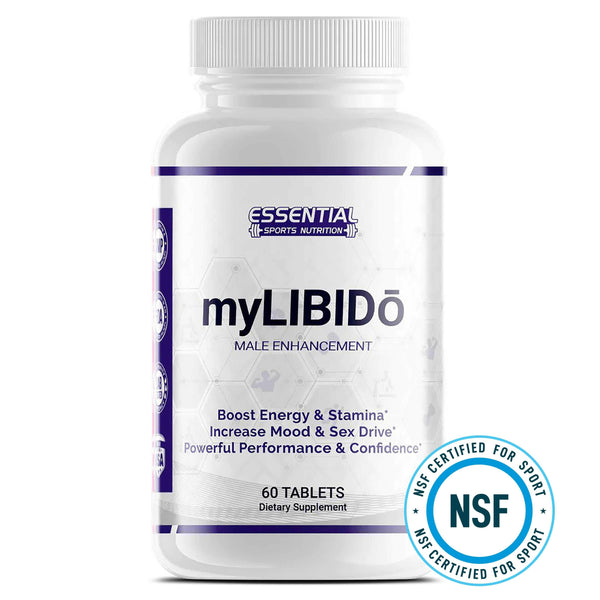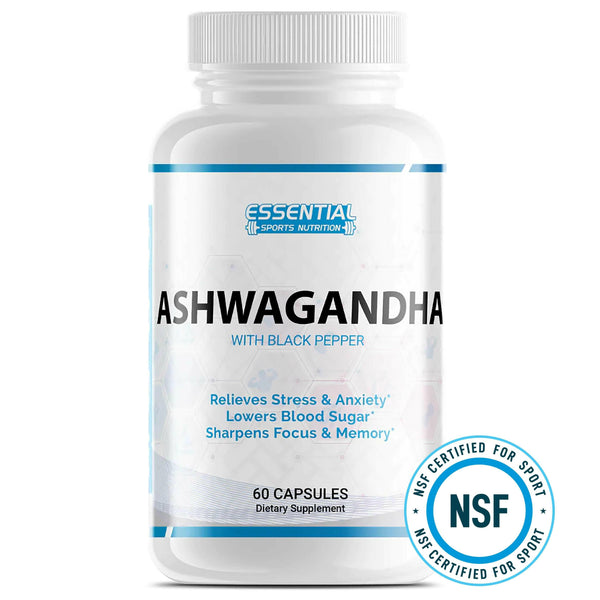Did you know that glutamine makes up a huge part of your muscles? It's an amino acid that's key for keeping your muscles strong and your immune system healthy. When you're looking to boost your well-being, you might hear a lot about glutamine.
People say it's good for your stomach, helps your body heal after injuries, and might even stop your muscles from getting smaller when you're very sick. But it's also smart to know about the downsides. Some people might feel bloated, and for folks with certain health issues, it could be more serious.
If you're thinking about trying glutamine, it's a good idea to look at the good stuff it can do and the risks it might bring. Always talk to a doctor if you're not sure what to do. They can help you make the best choice for your health.
Understanding Glutamine: Benefits and Cautions
Glutamine's Role in Health and Recovery
Glutamine is like the unsung hero of your body's support system. It's a key player in keeping your immune system strong and helps heal your body's tissues. However, it's crucial to use glutamine wisely. Too much can knock your body off kilter. Think of it as balancing on a tightrope; the right amount keeps you steady, but leaning too far one way or another can cause a fall.
Using Glutamine Wisely
Consider glutamine a helping hand for your body's well-being. It's a component that, when used in moderation, can be incredibly beneficial. But the line between help and harm is thin. It's all about finding that sweet spot. Consulting a healthcare expert is the best way to ensure you're walking that line safely when it comes to glutamine.
The Importance of Balance
Caring for your body is a top priority, and glutamine can play a significant part in that care. The key is moderation. The right balance allows you to tap into glutamine's positive effects without risking the downfalls. For safe use of glutamine, getting advice from a healthcare provider is always recommended.
Understanding Glutamine
You mightn't realize it, but your body relies on glutamine as a building block for various essential processes. This abundant amino acid plays a critical role in protein synthesis, supporting muscle growth and maintenance. As a conditionally essential amino, your body generally produces enough glutamine, but during times of stress or illness, you might need more than what your body can supply.
Glutamine is a key player in maintaining your immune system's health. It provides vital support to immune cells, ensuring they function optimally to protect you from pathogens. Your intestinal health also benefits from this amino acid, as it serves as a significant fuel source for the cells lining your gut, helping maintain the integrity of the intestinal barrier.
While your body can usually meet its glutamine needs through internal production and your diet, supplementation might be beneficial during certain circumstances, such as recovery after surgery or critical illnesses. Supplements aim to bolster levels of this amino acid when your body's demand exceeds its production capacity.
However, it's important to be aware of potential side effects. While generally safe, excessive supplementation could lead to adverse effects. Always consult with a healthcare professional before starting any new supplementation regimen to ensure it aligns with your health needs.
Potential Health Benefits

Boosting Immune System and Intestinal Health
Glutamine plays a key role in strengthening your immune system and improving gut health, which are vital for your overall well-being. Research indicates that taking glutamine supplements can help uphold the intestinal barrier's integrity, keeping harmful pathogens and toxins out. This amino acid serves as fuel for immune cells, which is essential for a strong immune response.
Supporting Muscle Mass and Recovery
For those aiming to maintain or increase muscle mass, glutamine shows promise. It acts as a critical component for creating proteins and can help alleviate muscle discomfort following strenuous workouts. This can be especially useful for athletes or anyone regularly participating in physical activity. Keep in mind, that the effects of glutamine on muscle mass can vary from person to person.
Recommended Glutamine Dosage
The suggested amount of glutamine supplements typically lies between five to ten grams daily. This dosage is believed to help sustain muscle tissue and aid in recovery. Before adding glutamine to your routine, it's wise to talk with a healthcare expert. They can advise if it fits your health goals and check for any clashes with other medicines you might be using.
Common Uses in Practice

In your quest for optimal health, you may consider glutamine for its role in muscle growth support and immune system enhancement. Research suggests that glutamine supplementation can be beneficial during periods of muscle recovery and immune stress.
It's important to understand how this amino acid functions in the body to fully appreciate its common uses in clinical practice.
Glutamine's Role in Muscle Recovery and Growth
Athletes often turn to glutamine, a key amino acid, to help their muscles recover after a tough workout and potentially grow stronger. Glutamine, which our bodies naturally produce, is a critical part of the protein that helps fix muscles and keeps our immune system in good shape.
Some studies hint that glutamine could make muscle soreness less severe and help maintain strength. But it's not a guarantee for bigger muscles or better performance during exercise. Research tells us that while you can safely take glutamine in big amounts, like several grams every day, it's not a miracle worker for making muscles bigger.
Understanding Glutamine
Why is everyone talking about glutamine? Well, when you work out hard, your muscles get tiny tears, and that's where glutamine jumps in. It helps fix those tears, which is how muscles get stronger and bigger over time. But here's the catch: just taking glutamine alone won't do the trick. You need proper training, a balanced diet, and enough rest.
Immune System Enhancement
While you're focusing on muscle recovery, don't forget that glutamine also bolsters your immune system, a primary reason it's commonly used in clinical settings. Glutamine supplementation in critically ill patients has shown immune system enhancement, but it's important to note that this information doesn't provide medical advice.
Here's how glutamine can help immune function:
-
Fuels white blood cells and augments phagocytosis and reactive oxygen intermediate production.
-
Supports gut health, which is crucial for a robust immune response.
-
May reduce complications from major injuries by supporting immunity.
-
Helps maintain the integrity of the intestinal barrier, protecting against pathogens.
Bear in mind, that the effects of glutamine on immune function are complex, and while benefits are seen, potential side effects should also be considered.
Possible Side Effects

Taking glutamine can lead to side effects such as a swollen belly, feeling sick, or light-headedness. These are more likely if you take more than 40 grams a day. It's widely accepted that glutamine is safe when taken in the amounts suggested by health experts. Yet, it's wise to know about the downsides of using it wisely.
Side effects are usually not severe, but they can bother some people. If you react to glutamine or things like MSG, you may be more likely to feel these effects. Watching how you respond can help you avoid more issues.
For those who are pregnant or nursing, it's unclear if glutamine is safe. Also, children should use it with care because we don't know a lot about its safety for them yet. People with liver problems or bipolar disorder should stay away from glutamine. It could make things worse.
If you're taking medicine for seizures, you should know that glutamine might raise the chance of having a seizure. Always talk to a doctor if you're not sure if glutamine is okay for you, or if you're having side effects that you don't expect.
Precautions and Warnings

Before considering glutamine supplementation, you should be aware of potential allergies and interactions with other medications. If you're taking drugs for epilepsy or bipolar disorder, glutamine might alter their effectiveness or exacerbate certain conditions.
Always consult your healthcare provider to assess the risks, particularly if you have underlying health issues or are pregnant.
Allergy Considerations for Glutamine Supplements
If you have a sensitivity to monosodium glutamate, you might also react to glutamine. It's important to talk with your doctor about the possibility of an allergic reaction if you're thinking about taking glutamine supplements. This is especially true if you have a past with food allergies or sensitivities.
Here's what you should keep in mind:
-
Glutamine might change how some medicines work.
-
If you're pregnant or breastfeeding, be careful and stay away from large amounts.
-
People with bipolar disorder might've a higher chance of mania or hypomania.
-
There might be other side effects, so having a health professional keep an eye on you is a good idea.
Studies have looked at using glutamine to stop or treat problems in people getting treatment for immune system issues, but we need more research to really know the effects on the immune system.
Interaction With Medications
Glutamine supplementation, while offering various benefits, can lead to side effects due to interactions with medications. If you're using drugs to prevent seizures, adding glutamine might raise your seizure risk. This is because glutamine, one of the amino acids, could affect neurotransmitter levels.
If you have liver disease, use of glutamine should be approached with caution, as it may exacerbate brain function issues.
Glutamine levels should be carefully managed in patients receiving bone marrow transplants, as well as those with kidney disease.
Lastly, if you're pregnant or breast-feeding, it's important to avoid excessive medicinal amounts of glutamine due to potential risks.
Dosage Recommendations

Understanding Glutamine Dosage
To get the most out of glutamine and avoid negative effects, it's important to stick to recommended amounts. Glutamine is a key nutrient that fuels your cells and can help keep tiredness at bay when you're working out hard or under a lot of stress. When adding glutamine to your diet, it's key to use the right amount.
Adult Dosage Guidelines
Most adults can safely take up to 40 grams of glutamine each day through oral supplements.
Special Considerations for Pregnant and Nursing Individuals
If you're pregnant or breastfeeding, it's wise to only get glutamine from your diet, not from higher-dose supplements.
Dosages for Children
For kids, it's generally okay to have up to 0.7 grams/kg of body weight per day. More than this can be unsafe.
When to Avoid Glutamine
Those with liver problems or who are sensitive to MSG shouldn't take glutamine supplements.
Importance of Correct Dosage
Getting the right amount of glutamine is vital. Your body usually makes enough of this amino acid, but sometimes you might need more, like when you're sick or working out a lot. Before changing your glutamine intake, talking to a healthcare professional is a good idea to make sure you're doing it safely and effectively.
Glutamine FAQs:
Q: What is glutamine and its role in the body?
A: Glutamine is an amino acid, the most abundant in the body, and serves as a building block of protein. It plays a crucial role in various bodily functions, including supporting the immune system, maintaining the health of the intestinal cells, and promoting gut function.
Q: Are there any dietary sources of glutamine?
A: Yes, glutamine is found in various dietary sources such as beef, chicken, fish, dairy products, eggs, and certain fruits and vegetables. However, in some cases, such as injury or illness, oral glutamine supplements may be necessary.
Q: What are the potential health benefits of glutamine supplementation?
A: Glutamine supplementation is believed to have potential benefits for conditions such as short bowel syndrome, inflammatory bowel disease, diarrhea, sickle cell disease, and supporting the recovery process following surgery or severe illness.
Q: What is the recommended dosage of glutamine supplements?
A: The recommended dosage of glutamine supplements may vary depending on individual health conditions and needs. However, typical dosages range from 5 to 30 grams per day, and it's important to consult with a healthcare professional for personalized guidance.
Q: Are there any potential side effects of glutamine supplementation?
A: While glutamine is generally considered safe for most people, some individuals may experience mild side effects such as nausea, vomiting, or stomach pain. It's important to discuss the use of glutamine supplements with a healthcare provider, especially for those with pre-existing medical conditions.
Q: Can glutamine supplements have an impact on bowel health?
A: Yes, glutamine supplements may have a positive impact on bowel health by supporting the integrity of the intestinal lining and promoting healthy bowel function. This can be beneficial for individuals with conditions such as irritable bowel syndrome or inflammatory bowel disease.
Q: Is there evidence supporting the efficacy of glutamine supplementation?
A: While there is some evidence suggesting the potential benefits of glutamine supplementation, more research is needed to fully understand its efficacy for various health conditions. It's advisable to stay informed about the latest findings from clinical studies and consult with healthcare professionals for personalized recommendations.
Q: Can long-term use of glutamine supplements have any negative side effects?
A: Currently, there is limited information on the long-term effects of glutamine supplementation. Individuals considering long-term use should seek guidance from healthcare providers to assess potential risks and benefits based on their specific health circumstances.
Q: Who should be cautious when taking glutamine supplements?
A: Individuals with pre-existing medical conditions, especially those related to liver or kidney function, should approach glutamine supplementation with caution and under the guidance of healthcare professionals. It's essential to discuss any underlying health concerns and medication interactions before starting a glutamine supplement regimen.
Q: What should I know about the safety of glutamine supplements for cancer patients?
A: Glutamine supplementation in cancer patients may require careful consideration due to potential interactions with cancer treatments and individual health status. It's critical for cancer patients to consult with their oncologists or oncology nutritionists before incorporating glutamine supplements into their treatment plans.
Q: Will taking a glutamine supplement help with losing weight?
Glutamine supplements are unlikely to directly cause weight loss. While glutamine plays a role in muscle repair and recovery, it's primarily used by the body for maintaining gut health and immune function. Weight loss is more effectively achieved through a combination of a balanced diet, regular exercise, and healthy lifestyle habits
Q: Will taking a glutamine supplement help with IBS?
Glutamine supplements may potentially help alleviate symptoms of irritable bowel syndrome (IBS) for some individuals by supporting gut health. Glutamine is an important nutrient for the intestinal lining and may help strengthen it, potentially reducing inflammation and improving symptoms such as diarrhea and abdominal pain. However, individual responses to glutamine supplementation can vary, and it's essential to consult with a healthcare professional for personalized advice and appropriate dosage.
Other Frequently Asked Questions:
What Are the Side Effects of Glutamine Benefits?
When we talk about glutamine, we often focus on its health benefits. However, it's important to know that even helpful supplements can cause unwanted reactions. Glutamine side effects can vary from person to person but commonly include feelings of bloating, an upset stomach, and sometimes dizziness or heartburn.
For those who are pregnant, nursing, or managing specific health conditions, using glutamine might be riskier. It's essential to talk with a doctor before starting any new supplement, including glutamine, to get advice that's right for your health needs. Your doctor can help you weigh the benefits against the potential risks to make an informed choice.
What Does Glutamine Do for Your Body?
Glutamine powers your immune cells and keeps your gut lining healthy. It also supports muscle recovery. It's crucial for synthesizing proteins and neurotransmitters, which can affect your mood and brain function.
When you're critically ill or injured, glutamine can boost your immunity and help you heal. It's not just a supplement for athletes; it's vital for overall well-being. Glutamine plays a significant role in fighting infections and recovering from serious health challenges.
What Are the Pros and Cons of Glutamine?
You're curious about the double-edged sword of glutamine. On one hand, it's your ally in immune support and gut health, helping to mend after severe stress. It can lessen muscle soreness and support those with critical illnesses.
Yet, it's not without its pitfalls, including potential discomforts like bloating and risks for certain conditions. Balance is key, as overindulgence may lead to complications, particularly for those with specific medical conditions.
Does L-Glutamine Reduce Belly Fat?
Wondering about L-glutamine's role in reducing belly fat? It's key to know that L-glutamine itself isn't a direct fat burner. Instead, this amino acid helps with muscle recovery post-exercise.
Stronger muscles can boost your metabolism, which in turn might help you shed unwanted fat over time. Keeping up your muscle mass is vital when you're trying to lose weight, and that's where L-glutamine comes in.
Take Glutamine
Glutamine plays a vital role in your body, similar to how a strong frame supports a building. It's essential for a healthy immune system and for repairing your body, but taking too much can upset your body's natural balance. It's important to be cautious and follow the advice of healthcare professionals.
Think of glutamine as a tool that can maintain or disturb your body's harmony. It's all about using it correctly.
Remember, your body should be cared for with respect, and glutamine is one element that can help do that, provided it's used in the right way. Balance is the secret to enjoying its advantages without experiencing unwanted side effects. Always consult with a healthcare provider to use glutamine safely.























